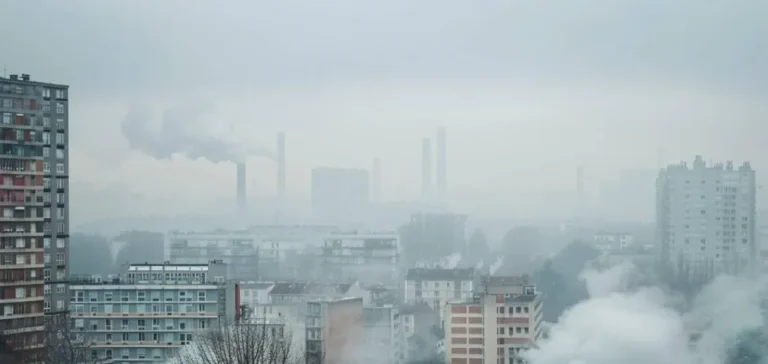France could experience a marked slowdown in the pace of reducing its greenhouse gas (GHG) emissions in 2025. According to provisional estimates by the Interprofessional Technical Centre for Studies on Air Pollution (Citepa), national emissions, excluding carbon sinks, would increase by 0.2% in the first quarter compared to the same period in 2024, thus reaching 104.2 million tonnes of carbon dioxide equivalent (Mt CO₂e).
Significant influence from real estate sector
The increase noted this quarter is primarily due to the building sector, where emissions rose by 5.2%, equivalent to an additional 1 Mt CO₂e. This increase is directly attributed to significantly lower temperatures recorded during the first three months of 2025 compared to the previous year. Meanwhile, emissions from the energy sector also saw a slight increase of 0.5%, driven by higher consumption linked to urban heating.
Conversely, several sectors display opposite trends, partially offsetting the overall emissions increase. The transport sector shows a notable reduction of 2.5%, representing a decline of 0.7 Mt CO₂e, mainly due to reduced emissions from diesel-powered vehicles. The manufacturing industry sector also experienced a slight decline of 0.5% in emissions.
Mixed overall forecasts for 2025
Despite the first-quarter increase, Citepa forecasts an overall reduction in emissions for the entire year 2025 of around 0.8% compared to 2024, reaching an annual total of 366 Mt CO₂e. However, this decrease would remain insufficient to meet national targets set out in the National Low Carbon Strategy No.3, which requires an average annual reduction of 5% between 2024 and 2030, in order to achieve a 50% cut in gross emissions by 2030 compared to 1990 levels.
In response to these findings, Agnès Pannier-Runacher, Minister of Ecological Transition, Biodiversity, Forest, Sea and Fisheries, has called for a “collective remobilisation,” emphasising the economic and climate-related importance of increasing efforts, particularly in the building and transport sectors. The minister described the forecasts as “very poor” and stressed the urgency of “correcting what is obstructive and amplifying what works” in order to restore the national trajectory.






















